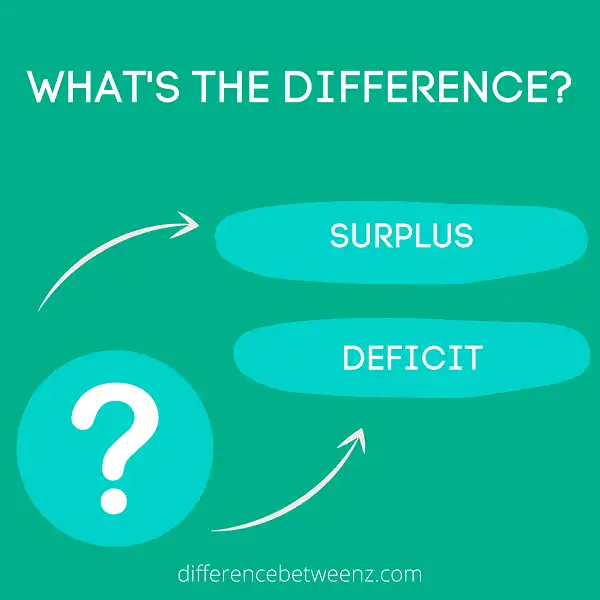A surplus occurs when a government or company earns more revenue than it spends. A deficit, on the other hand, is when expenses exceed revenue. This article will explore the definitions of these terms in further detail, as well as discuss their implications for businesses and governments.
What is Surplus?
Surplus is a term that is used in economics to describe the number of goods or resources that are left over after all needs have been met. In the context of business, the surplus can refer to the amount of inventory that a company has on hand after all customer demand has been met. In the context of government budgeting, surplus refers to the amount of revenue that is left over after all expenses have been paid. If a government has a budget surplus, it means that it is taking in more money than it is spending. Surpluses can also occur in natural systems, such as when there is an abundance of food or water.
What is Deficit?
The deficit is an economic term that refers to the difference between the government’s spending and its revenue. In other words, it is the amount by which the government’s expenditures exceed its income. The deficit can be caused by a number of factors, including natural disasters, wars, and recessions. When the government incurs a deficit, it must either borrow money or print more money. This can lead to inflation, as too much money chasing too few goods will drive up prices. In extreme cases, a government may default on its debt, which can trigger a financial crisis.
Difference between Surplus and Deficit
- A budget surplus occurs when government revenue collected is greater than government spending in a fiscal year. A budget deficit occurs when government spending exceeds government revenue. A primary cause of deflation is a decrease in money supply or credit, causing one’s money to buy more goods and services than before.
- When the money supply decreases, prices for goods and services decrease as well. This is often caused by a decrease in investment spending, which can lead to a decrease in employment and wages.
- A decrease in consumption spending can also lead to deflationary pressures. The opposite of inflation is deflation, which refers to a general decline in prices, often caused by a reduction in the money supply.
Conclusion
Surplus and deficit are two words that are often confused with each other. This is because they both have to do with money, but they have different meanings. A surplus is when you have more money than you need, while a deficit is when you have less money than you need. Knowing the difference between these two words can help you make better financial decisions for your business.


